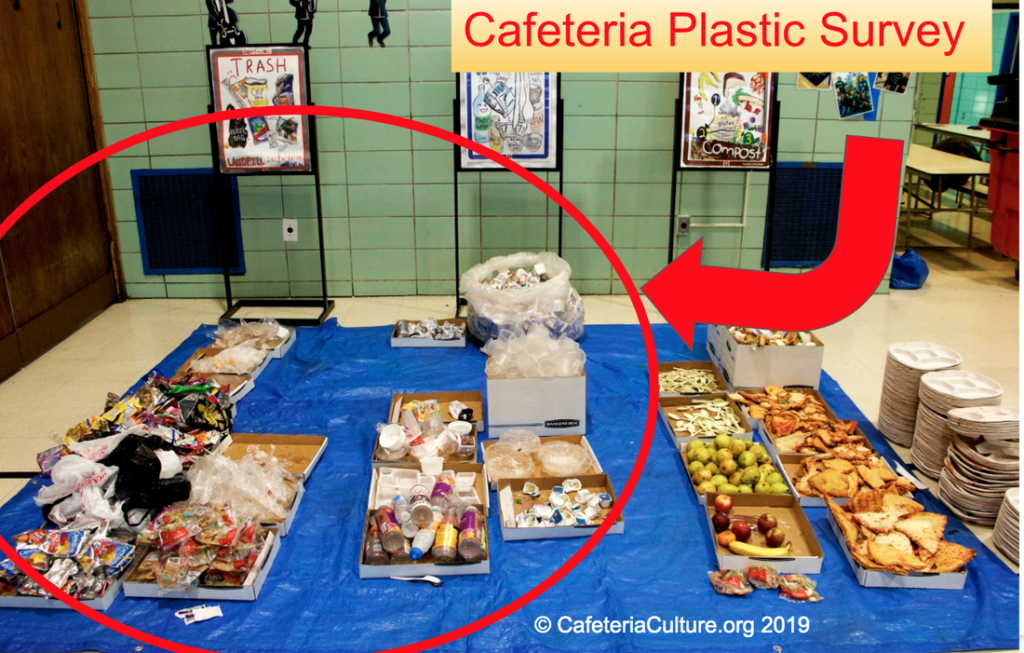
Our Story
Post Content
Founded in 2009 as Styrofoam Out of Schools, CafCu catalyzed the complete elimination of polystyrene (or styrofoam) trays from all NYC schools, resulting in the diversion of more than half a billion styrene foam trays per year from landfills, incinerators and student meals in 18 of the largest US school districts.
Background Story
NYC public schools had been throwing “away” almost 4,250,000 harmful styrofoam trays per week. Over the past 20 years, that added up to well over 3 BILLION toxic and polluting styrene foam trays, used for 20- 30 minutes only then exported out of state to landfills and incinerators
These polystyrene plastic foam trays were used by our students, who eat up to 3 meals per day for as many as 13 years with hot food served directly on the tray. NYC is the largest school district in the US (double the size of L.A.), servicing 1.1 million students with 80,000 teachers and thousands of additional personnel.


Within one year, collaborative efforts resulted in “Trayless Tuesdays” across all 1800 NYC public schools. That initiative alone resulted in the elimination of 100 million styrene foam trays from school lunches, incinerators and landfills with no additional cost to the City.
Now called Cafeteria Culture (CafCu), our organization has built strategic coalitions, resulting in the 2013 decision to completely eliminate polystyrene foam trays from all NYC schools. As of the fall 2015, New York City’s agreement to co-purchase compostable plates with the 5 other largest U.S. school districts, catalyzed by CafCu’s unstoppable grassroots efforts, has driven down cost of a compostable plate and diverted an impressive 1/2 a billion polystyrene foam trays per year from landfills, incinerators and school lunches in schools across the US!


To ensure that the new compostable school food plates and other recyclables remain as resources, CafCu has taught our award winning “Cafeteria Ranger” service learning programs to over 12,000 pre-K- 12th graders in 22 New York City (NYC) schools. We start by teaching “Garbology 101,” that there is no “AWAY.” Then students take on leadership roles as Cafeteria Rangers during the lunch period to oversee all sorting. To scale the program up, CafCu launched a free online, multimedia SORT2save KIT in 2015. The “SORT2save Cheer” – video currently has almost 10K unique views on YouTube!
Building upon the success of the Cafeteria Ranger programs, in 2015, CafCu began to pilot Plastic Free Waters (PFW) curriculum, extending student leadership from the school out to the community. Students in grades 3-8 engage in the design of creative solutions to address one of the pollution and health issues of our time, the pervasiveness of single-use plastics.
Students conduct street and beach litter characterization studies and cleanups, pilot reusable bag giveaways, engage neighbors and local businesses, and design creative messaging, such as giant puppets, banners and videos. Utilizing their own local data and culturally rich narratives, students present to their community, legislators, and government agencies, accelerating community and citywide action.
The process builds student confidence and a sense of connection by rooting civics, leadership, and participatory democracy into place-based education. Programs are documented and promoted on our YouTube channel, CafCu Media – with 80K subscribers and 36 million views – to inspire other communities to replicate similar initiatives. (watch: “Got Reusable Bags? Youth kickstart BYO bag movement in Flatbush”).
Realizing ZERO WASTE solutions!
Our Cafcu team has spent thousands of hours working closely with students and school staff in NYC cafeterias in East Harlem, Crown Heights, East Flatbush, the Bronx and the Lower East Side, fueling us with invaluable “user” knowledge that we could not have acquired in any other manner. We regularly share valuable on-the-ground information and recommendations regarding packaging, messaging, product and system design with the directors of government agencies, helping to accelerate urgently needed change.

Watch: “We are Citizen Scientists” on Vimeo ->; students from PS 15 Patrick F. Daly in Red Hook, Brooklyn take to the streets to collect litter and data!

Featured Initiatives


